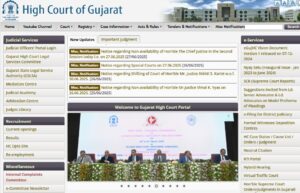StudyIQ is India’s Best Website for UPSC, State PSC, and Judiciary exam preparation. We offer a wide array of resources designed to help aspirants succeed in these highly competitive exams. Our platform provides UPSC Online Coaching, Daily Current Affairs, Government Schemes Updates, General Knowledge Updates, and State PSC Updates, ensuring that you stay well-informed and prepared at all times.
We cover a diverse range of subjects, including History Updates, Geography Updates, Indian Polity Updates, Environment Updates, Science Tech Updates, Economy Updates, and Art and Culture Updates. Our Biography Updates help you learn about influential figures that are often tested in various exams.
Trending Posts
- UPPSC Previous Year Question Papers, Download Prelims and Mains PDFJune 30, 2025Uttar Pradesh Public Service Commission conducts the UPPSC PCS Recruitment 2025 every year for recruiting the Combined ...
- Most Commonly Used Cancer Drugs and Their EffectsJune 30, 2025Context: A major investigation revealed that commonly used cancer drugs failed quality tests before being shipped to ...
- Tansen Biography, Musical Legacy and Master of DhrupadJune 30, 2025Context: Recently, the Madhya Pradesh High Court dismissed a plea requesting permission to conduct religious and cultural ...
- America’s Plan to Manage AI Proliferation: Consequences and ImplicationsJune 30, 2025Context: The announcement by the United States of the rescission of its Framework for AI Diffusion has ...
- Gujarat Judiciary 2025 Solved Question Paper | यहाँ देखें GJS 2025 के AnswersJune 30, 2025The Gujarat Judicial Service (GJS) Prelims Exam 2025 was held successfully by the Gujarat High Court on ...
- UPPSC Mains Question Paper 2025: Download PDF for GS, Hindi & Essay PapersJune 30, 2025The UPPSC Mains Question Paper 2025 is now available for download! Uttar Pradesh Public Service Commission (UPPSC) ...
- Monasteries in India: List of Major and Famous Buddhist MonasteriesJune 30, 2025India is a land of diverse religions, and Buddhism has deep roots in the country’s spiritual and ...
- National Doctor’s Day 2025: History, Theme, Significance & Celebration in IndiaJune 30, 2025Every year on July 1, India observes National Doctor’s Day to honor the dedication, commitment, and invaluable ...
- Maharashtra’s Mendrachi Vancharai SystemJune 30, 2025Context: An IIT Bombay researcher has found that colonial-era land reforms led to the disappearance of Maharashtra’s ...
Government Schemes
- NAVYA Initiative, Key Features, Implementation and Significance
- e-Rakt Kosh Platform: Purpose and Key Features
- Ministry of Education Released Performance Grading Index (PGI) 2.0 Report
- One Stop Centre Scheme: Key Services and Target Beneficiaries
- Green India Mission (GIM): Vision, Objectives and Targets
- Lateral Entry: Recruitment Process, Key Challenges and Reasons
History
- Maharashtra’s Mendrachi Vancharai System
- Keeladi Excavation: Uncovering the Ancient Tamil Civilization
- Sanyasi Revolt, Objectives, History, Reason and Important Leaders
- Indus Valley Civilization, History, Phases, Script and Significance
- Pandyan Dynasty, Administration and Social and Political Aspects
- Regulating Act of 1773: Background, Provisions, Significance & Drawbacks
Geography
- Places in News for UPSC 2025 for Prelims and Mains Exam
- Evaporative Demand: Main Drivers and its Environmental Impact
- Summer Solstice, Definition, Reason and Significance
- Heat Risk in India, Key Drivers and Findings of Study
- List of Middle East Countries, Capitals, Map and Importance
- Asafoetida (Heeng) Cultivation: Uses, Benefits and Cultivation Zones
Indian Polity
- India Mediation Campaign, Objectives, Process and Significance
- Emergency Provisions in Indian Constitution: Types and Significance
- Directive Principles of State Policy (DPSP) Meaning, Articles, Features, Importance
- National Company Law Appellate Tribunal (NCLAT)
- Judges Joining Politics: Constitutional Restrictions, Concerns and Examples
- President’s Rule in India, Article 356, Grounds of Declaration
Environment
- Salkhan Fossil Park Joins UNESCO’s Tentative List of World Heritage Sites
- Forest Conservation Act 1980, Objectives, Features, Amendments
- Rinderpest: Causes, Transmission, Symptoms and RHF Designation
- Russell’s Viper: Features, Habitat and Conservation Status
- Gharial: Characteristics, Habitat and Conservation Status
- International Big Cat Alliance (IBCA), Objectives and Significance
Economy
- Poverty in India, Types, Causes and Government Initiatives
- Coffee Plantation in India, Major Regions and India’s Robusta Beans Export
- Food and Fertiliser Subsidies in India, Need and Issues
- Expansionary Policy in India, Types, Advantages and Risks
- Global Trade War: Steering the Indian Economy Amidst Global Troubles
- 4th International Conference on Financing for Development 2025
Biography
- Tansen Biography, Musical Legacy and Master of Dhrupad
- Sree Narayana Guru (1856–1928), Key Movements and Literary Works
- Mangal Pandey Biography, History and Role in Revolt of 1857
- Dr. Shyama Prasad Mukherjee Biography, Legacy, and Contributions to Indian Politics
- Meet Saraswathi Rajamani: India’s First Female Spy during Freedom Struggle
- Ahilya Bai Holkar Biography, Key Contributions and Legacy
Best UPSC IAS Preparation Website 2025
The objective of the StudyIQ is to provide every student across the country with affordable resources that can help them in their preparation for UPSC, State PSC and Judiciary exams.
StudyIQ covers all the recruitment information from the start till the end. After the release of the notification of the exam, we cover the detailed information that a candidate wants to know about a particular recruitment, such as the notification, important exam dates, vacancy details, eligibility criteria, exam pattern, syllabus, and educational qualifications. We also provide you with a direct link to download the notification PDF directly and steps to download or apply for the particular examination from the respective official website.
StudyIQ provided appropriate study material with the test series, book kit, mock test, previous years’ question papers with solutions, cut off, and daily MCQs. We provide you with vast knowledge of all subjects required for examination, section-wise knowledge, and also videos on the daily relevant current affairs topics on our StudyIQ YouTube platform.
Our test series, daily study notes/PDF, and mock tests help candidates prepare themselves on a daily basis for the UPSC, State PSC, and Judiciary examinations. This will help candidates increase their speed and Accuracy without going to any of the big cities for preparation.
Candidates can attempt proper section-wise mock tests for all topics at their home comfort zone. We also provide daily MCQs for a particular topic of the subject.
As we see there are ample amounts of study materials available in the market that sometimes dilute the focus of the candidates from the focused area. So, the StudyIQ team provides you with all relevant information in one place in a systematic way that can help you figure out the strategy and planning to complete their syllabus in a timely manner.
Best Website for UPSC Preparation 2025
The Union Public Service Commission conducts the UPSC CSE exam every year for the recruitment of various vacancies for the various posts of Group A and Group B under the central government. UPSC Civil Service 2025 is the biggest and most prestigious government examination. StudyIQ provides you with detailed information regarding the notification, exam pattern, eligibility criteria, important dates and syllabus, and Results.
Best UPSC Civil Service Preparation Website FAQs
Q. How do I start my UPSC preparation?
Ans. Candidates can start their UPSC preparation from the StudyIQ platform in a systematic way where you can find Daily Current Affairs, Burning Issues, Hindu Analysis, PIB Analysis and many more.
Q. How to cover current affairs when the IAS preparation syllabus is so vast?
Ans. Current Affairs for the IAS preparation is a very important part for which you can refer the StudyIQ’s Daily Current Affairs news Analysis and monthly magazine.
Q. Is self-preparation for the IAS exam enough to clear it?
Ans. Self-preparation for the IAS exam is a good choice but you need to start preparation in an organized manner with relevant study materials and proper strategy for which the StudyIQ platform can play an important role to provide all the UPSC-related materials and guidance at a place.
Q. Where to download UPSC study materials/IAS study material PDF?
Ans. Candidates can easily download UPSC study materials/IAS study material PDFs from India’s best UPSC platform StudyIQ.
Q. What are the Study Materials for GS preparation for IAS?
Ans. The Study Materials for GS preparation for the IAS exam include mainly NCERT from classes 6th to 12th, Daily Current Affairs & News analysis integrate with the static part and also refer to StudyIQ’s reference books such as Indian Geography, Indian Polity, Indian Economy, Indian Art & Culture and Fundamentals of Geography.
Q. Which website is best for the UPSC IAS exam preparation?
Ans. StudyIQ is the best platform for every aspect of the UPSC IAS exam preparation from scratch.
































